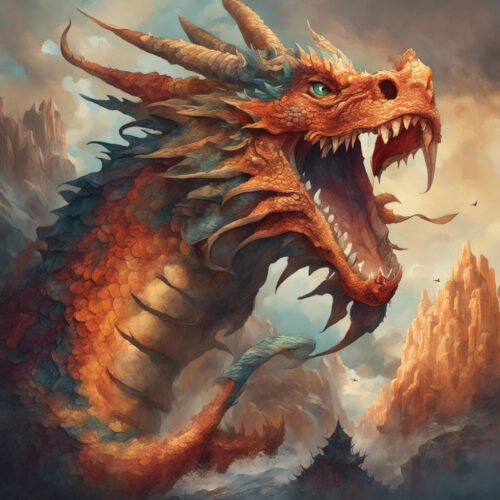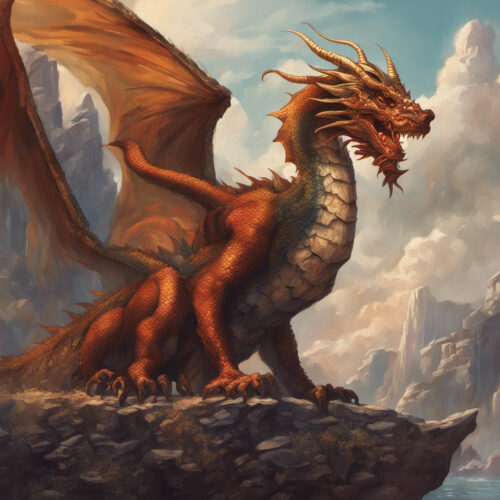Dragons have long been fascinating creatures in ancient cultures worldwide. These mythical creatures often symbolize power, wisdom, and protection. Their presence can be seen in various forms, from ancient artwork to folklore and legends. Let’s explore the rich symbolism associated with dragons in different ancient cultures.
Ancient Chinese Culture
In ancient Chinese culture, dragons were considered symbols of good luck and prosperity. They were believed to bring rain, control water, and protect against evil spirits. Emperors in China often associated themselves with dragons to signify their supreme authority and divine status.
Ancient Egyptian Culture
Ancient Egyptians also had a fascination with dragons. These serpent-like creatures were perceived as gods and were closely connected with Ra, the sun god. Dragons were symbolic of creation, fertility, and power. The Egyptian pharaohs associated themselves with dragons to convey their divine lineage and protect their rule.
Ancient Norse Culture
In Norse mythology, dragons represented chaos and destruction. They were fearsome creatures associated with fire, robbing treasures, and guarding them fiercely. The legendary dragon Jormungandr, also known as the Midgard Serpent, played a significant role in Norse sagas and was seen as a formidable opponent for the gods.
The Symbolic Meanings
Dragons have captured the imaginations of people throughout history, and their symbolism continues to fascinate us to this day. Here are some common symbolic meanings associated with dragons:
Strength and Power
Dragons are often linked with immense strength and power. Their imposing presence and ability to control elements like fire and water portray their dominance over the natural world.
Wisdom and Knowledge
In many cultures, dragons are seen as wise creatures with vast knowledge. They are often depicted as guardians of hidden treasures and ancient wisdom.
Protection and Good Fortune
Dragons have long been considered protectors against evil spirits and bringers of good luck. Their presence was believed to ward off negative influences and ensure prosperity.
To delve deeper into dragon symbolism and mythology, you can watch this insightful YouTube video: Dragon Symbolism Explained.
Conclusion
The symbolism of dragons in ancient cultures is captivating and diverse. These mythical creatures have left a lasting mark on civilizations worldwide, showcasing their power, wisdom, and protective nature. Exploring dragon symbolism allows us to appreciate the rich heritage and beliefs of different cultures.
For further reading on dragons and their significant roles in folklore and mythology, check out these external resources:



